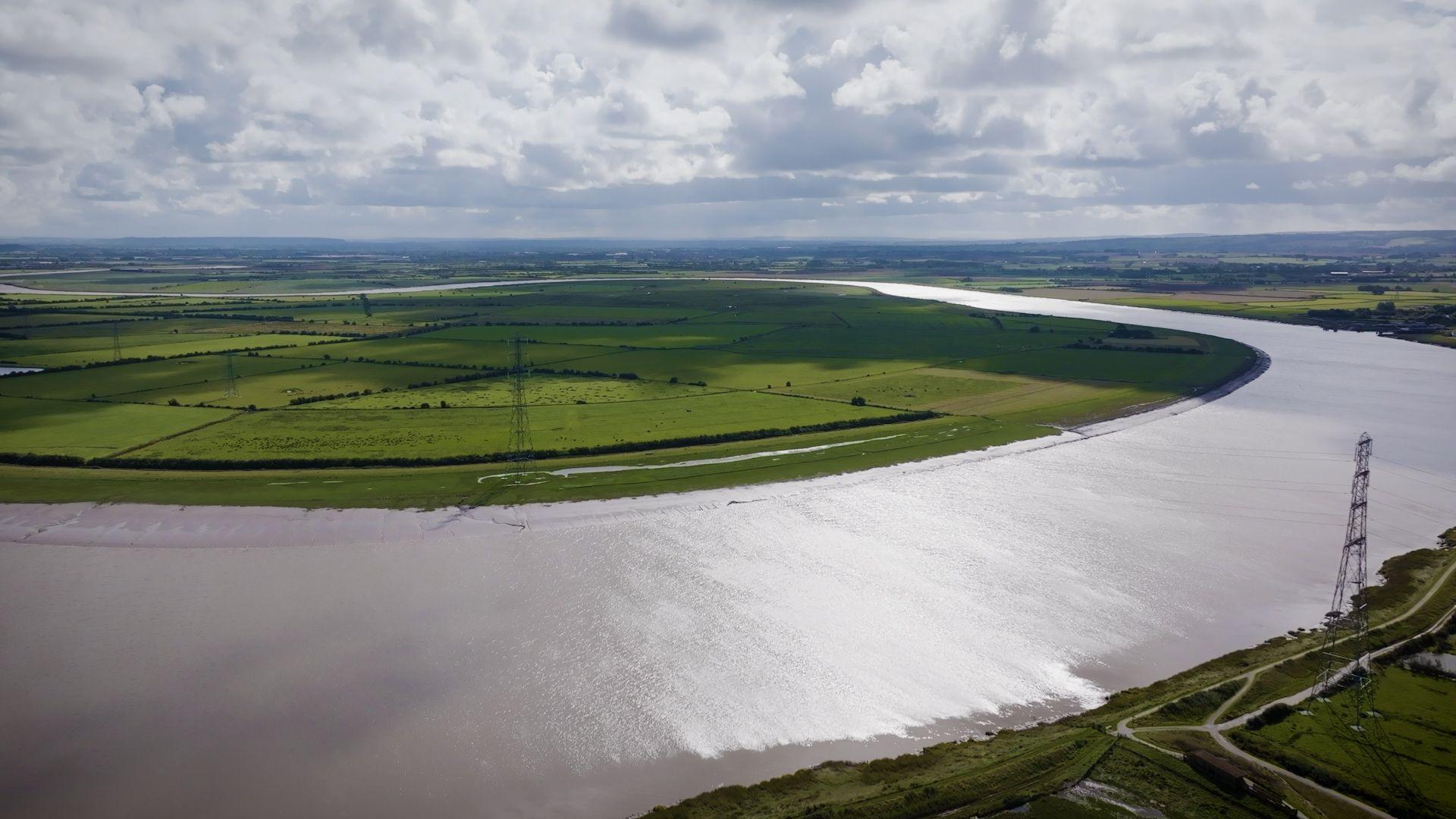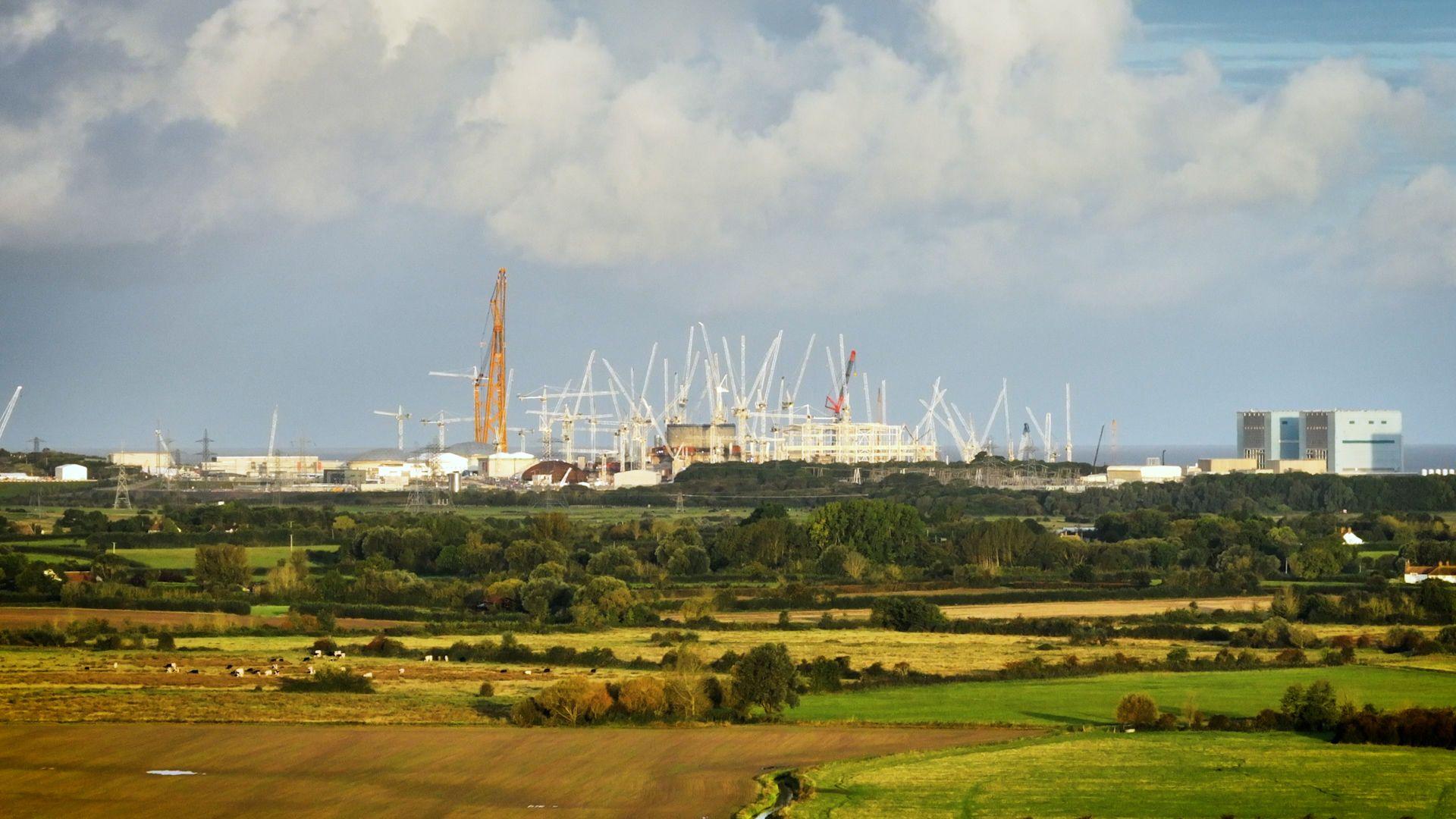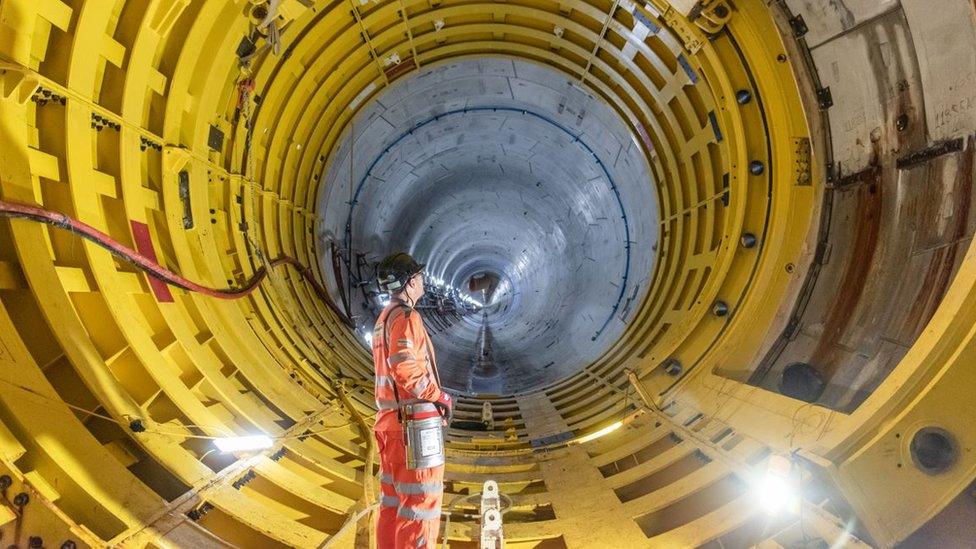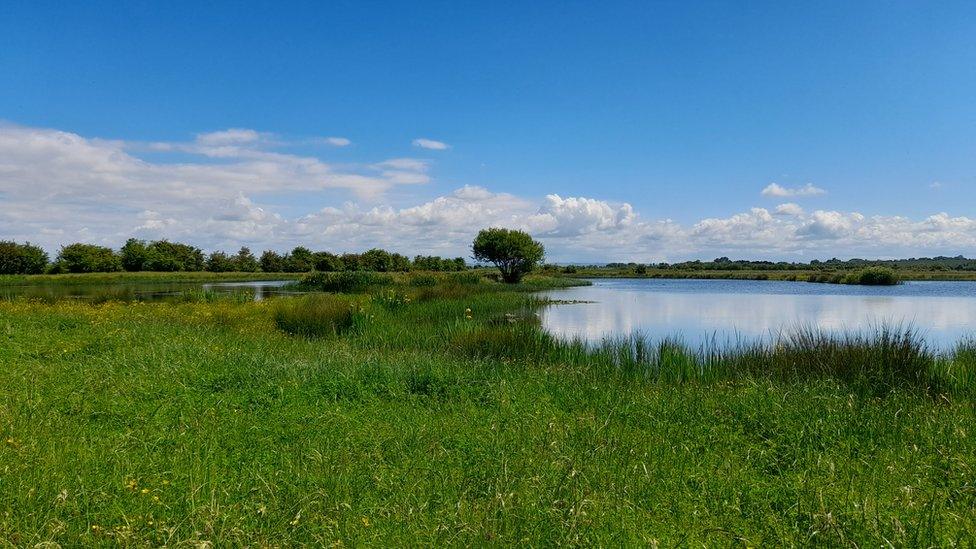Campaigners relieved after U-turn on salt marsh

EDF wanted to develop a salt marsh near its Hinkley Point C site
- Published
Environmental campaigners are celebrating after plans to create a salt marsh to offset a new nuclear power station were scrapped.
EDF Energy held a public consultation earlier this year over its plans for a salt marsh on the Pawlett Hams, which lie on the right bank of the River Parrett near the villages of Combwich and Pawlett.
The plans would have seen more than 800 acres of salt marsh created as part of the wider mitigation for the new Hinkley Point C nuclear power station, which is currently under construction.
Andrew Cockroft, the head of stakeholder relations said EDF had "listened to the concerns from the local community" when taking this decision.

Hinkley Point C is under construction near Bridgwater
EDF had argued that the new marshes would provide safe habitats for fish and animals, improve water quality and reduce the risk of localised flooding – complementing the creation of the Bridgwater tidal barrier immediately upstream.
Speaking to BBC Radio Somerset, Judith Ballard the campaign coordinator for Pawlett Hams Action Group said: "There's a sense of disbelief.
"We all thought that it was going to be an impossible fight to get the win and it hasn't really sunk in yet that it's true."
Ms Ballard said the site's placement at Pawlett Hams would have had an impact on the current cattle grazing sites there, as well as its status as a freshwater wetland and the rare plants and animals there.
She also thanked those who worked on the campaign to get EDF to move its site.
'Very small impact'
Mr Cockroft added it was still an important project, explaining: "We want to mitigate that very small environmental impact of the new power station, and we know that a salt marsh can support fish.
"It provides feeding areas, breeding grounds, and is one of the mechanisms by which we will protect against that very small impact."
Mr Cockroft added they are now exploring alternative sites to develop the project, and would liaise with local communities on that.
Follow BBC Somerset on Facebook, external and X, external. Send your story ideas to us on email or via WhatsApp on 0800 313 4630.
Related topics
- Published5 January 2024

- Published20 February 2024
